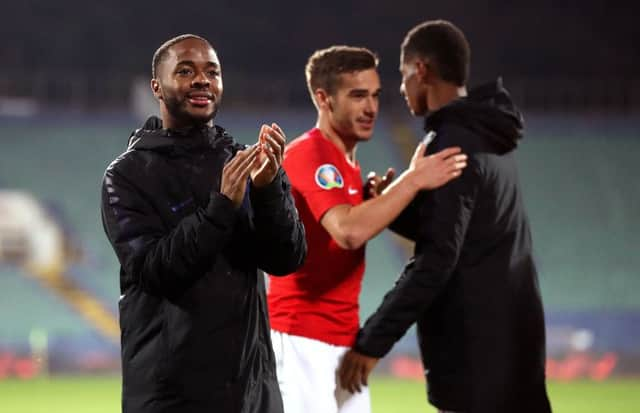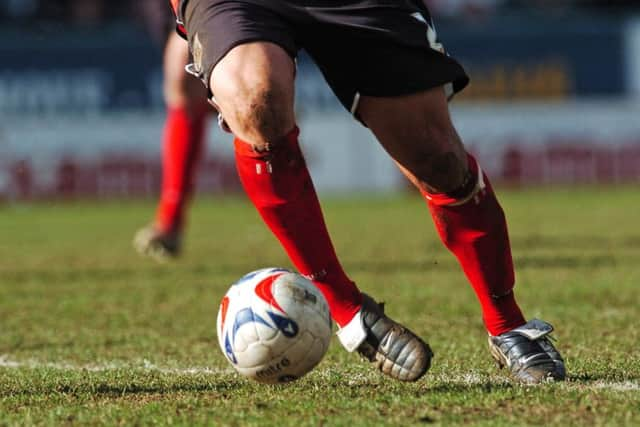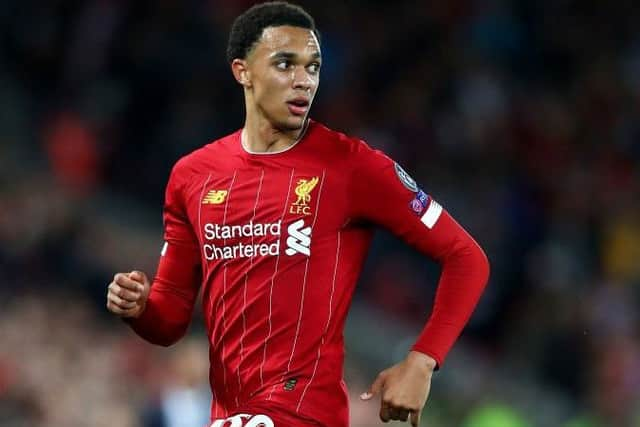Raheem Sterling’s stand against racism is admirable but only a sticking plaster on society’s ugly intolerance - Jayne Dowle


The Jamaican-born attacker, who learned his football on the tough pitches of North West London, has become the unofficial leader of an influential group of footballers speaking out against racism.
Advertisement
Hide AdAdvertisement
Hide AdIn a new video, part of the Premier League’s No Room for Racism campaign, he’s joined by other leading players including Liverpool’s Trent Alexander-Arnold, Tottenham’s Son Heung-min and Everton’s Jordan Pickford.


No-one could doubt their serious commitment to conquering this most insidious disease infecting the most beautiful game, at home and abroad. Sterling is a hero, not just amongst his fellow footballers, but as a role model for younger players and fans who cannot stomach the disgusting chants, cat-calls and tweets.
Such as my son, Jack, who has played football since the age of four. Every team Jack has played for has been a subconscious study in diversity. He’s played alongside and against lads who have come to Yorkshire from Africa, the West Indies, Pakistan and Eastern Europe.
Some boys stand out in our memory, because they gave us both a wider and interesting perspective on the world. For instance, we remember with fondness the lad from Lithuania whose father came here with nothing. Some weeks he struggled to copper up the £2.50 subs money. Then through sheer hard work, he went on to own a fish and chip business so profitable he ended up sponsoring the team and sending both his sons to private school.
Advertisement
Hide AdAdvertisement
Hide Ad

And we recall with pride the refugee from Zimbabwe whose amazing skills were spotted when he and Jack were at primary school together. He went on to join Barnsley’s youth academy and we used to see him waiting for the bus to the training ground in his tracksuit, which bore the town’s proud coat of arms; a miner and a glassblower.
Now 17, Jack has finally given up the Sunday morning football that saw us travelling all over Yorkshire. We would take on teams from tough estates, farming communities and privileged villages that all together, provided the biggest cross-section of society you can imagine.
Our experience proves that football is the greatest of levellers; the game can provide a common connection which circumvents cultural backgrounds, the language barrier and prejudice itself.
Advertisement
Hide AdAdvertisement
Hide AdJack’s view, formed both as a player and a follower, is that noble initiatives such as No Room for Racism are to be applauded, but don’t address the real reasons why there is so much abuse towards players – both on the pitch and via social media. The issue – in my opinion – is that the terrible insults, jeers and name-calling meted out to certain players, and the growing instances of homophobic and religious abuse, are reflective of society’s wider intolerance.
The anti-racism charity, Kick It Out, says that despite the falling away of barriers at grass-roots level, and the proliferation of players from all backgrounds and nationalities across the UK football spectrum, reports of racism and discrimination have gone up by almost half in the last year.
The total number of reports about discrimination in general – not just racism – are rising. Faith-based discrimination, which includes Islamophobia and anti-Semitism has almost doubled and homophobia is also on the rise.
Advertisement
Hide AdAdvertisement
Hide AdWhilst Roisin Wood, Kick It Out’s chief executive officer, acknowledges that these figures are partly due to increased awareness, she does make a very crucial point: “Football reflects the society it is played and watched in and these figures are sadly not surprising. The fact that racist reports have risen by 43 per cent clearly shows the massive work that all of football still needs to do to challenge this.”
But her view does beg the question; we know that football can be a force for good, uniting all under one banner, but it also provides an easy outlet for those who seek to sow division, hatred and fear.
Until the reasons why this is spreading across continents and through the crowds are fully addressed by political and executive leaders, Sterling and his band of brothers will be but a sticking plaster on an ugly, festering wound.